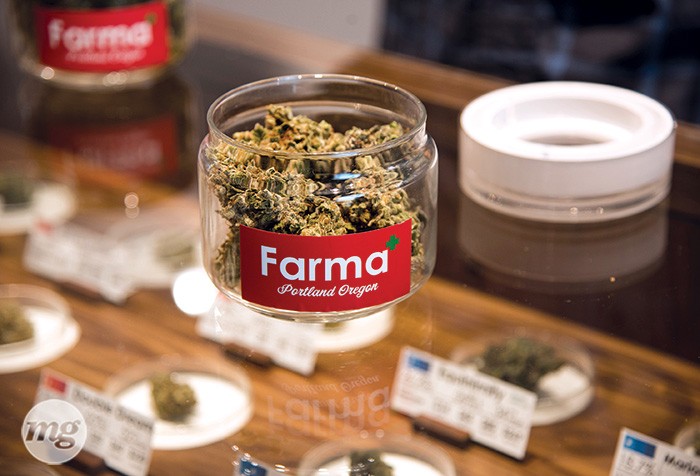The Oregon Cannabis Industry has gone through some serious growing pains.
On October 1, 2015, some 17 months ago, early recreational sales began in Oregon. Anybody over 21 could purchase a very limited amount of cannabis, without a medical card, even though the industry was still playing by the medical rule book. For the next year, most cannabis companies in Oregon continued to operate under the medical program as defined by the OHA (Oregon Health Authority) while waiting for the OLCC (Oregon Liquor Control Commission) to provide specific recreational legislature and start issuing recreational licenses. During the early recreational sales program, the OHA frequently changed rules and regulations making businesses scramble to remain in compliance. This left little time for companies to pursue their OLCC licenses.
The path to obtaining an OLCC license is a not an easy one. There are many moving parts and hidden requirements, not to mention the exorbitant fees that come with each approval process. In some cases, companies must obtain a city license, packaging and labeling approval, building permits, workers’ permits, and specific endorsements from the state, which costs thousands of dollars. However, if a company were not to pursue OLCC licensing they would be left in the medical world with little possibility of making the necessary revenue to remain in business. Small, craft companies needed to leave medical behind, but due to the OLCC’s unclear communication and incorrect assessment of the needs of the budding industry, many companies were left struggling to keep up in the new recreational paradigm.
On October 1, 2016, exactly one year after the start of recreational sales, the OLCC began exercising its dominance. Stricter testing standards took effect and many recreational licenses were issued. There were not enough accredited labs to meet testing demands and OLCC licensed companies could no longer work with non-OLCC licensed facilities. The regulatory agencies were understaffed, and it took longer and longer to grant licenses and deliver test results. This led to a product shortage and an industry-wide panic.

That conundrum forced Toro Ma, a long-established edible brand in the medical industry, to shut its doors during the transition to recreational. Toro did not have the revenue to justify remaining in production for the small amount of medical business it could garner. The costs outweighed the profit, so the chocolate river stopped flowing. Not only did this have detrimental financial effects to their company, but it also affected the many people who rely on its chocolate for medicine. Worse, the lack of access to product is not specific to people looking for Toro Ma; it is a widespread industry problem.
“Consumers of cannabis-infused products, medical patients or others, have faced difficult decisions brought on by sudden shifts in product availability and skyrocketing prices,” Toro Ma asserts.
At Farma, a popular Portland dispensary, we have a brilliant team and incredibly strong relationships with our vendors. We were as prepared for the regulatory transition as we could have been. We had to keep up with frequent bulletins from the OLCC that would drastically change what we were able to sell. We had to adjust our infrastructure to adhere to strict security measures (every inch of the shop must be covered by 24-hour surveillance). It was frustrating, to say the least, but we powered through with the hope that the recreational world would provide us with higher purchase limits and more product.

However, the grass isn’t always greener on the other side. Since we became an OLCC-licensed dispensary, it has been hard to stock our shelves with our most trusted craft providers. Purchase limits have dramatically increased thanks to the OLCC drafted legislature, but product availability has substantially decreased. The irony is not lost on us.
Only now, five months after activating Farma’s OLCC license, are we seeing the return of products like tincture, RSO, cartridges and gummy candies. The absence of these products has had grave effects for sick people who rely on them for medicine. Now that they are back, access continues to be an issue as prices have increased due to the new regulations. Furthermore, it is still difficult to find quality, craft providers that we can source product from.
The transition to OLCC has seemingly shut down craft producers overnight. As Toro Ma points out, “It has not been the intent of lawmakers to do so, but the net effect of rulemaking has been to crush a once thriving cottage industry and scatter it to the wind.”
To make it in the new recreational paradigm, you must have money and time, two things that most homegrown, small batch, “craft” processing companies don’t have. However, there is still hope. Craft industry overall thrives in Oregon, as there is such a high demand for locally and sustainably made product. Cannabis regulation is still so new; we can only hope that lawmakers bend to the will of the market. Toro Ma comments, “We do hope that we can one day arrive at a more nuanced approach to cannabis consistency and purity. Flexibility and true public-private partnership will be required as hallmarks of this approach.”
There is hope that a more nuanced approach to cannabis legislation will one day become a reality in Oregon. The OLCC regulated recreational industry is barely five months old; we still have a way to grow.









